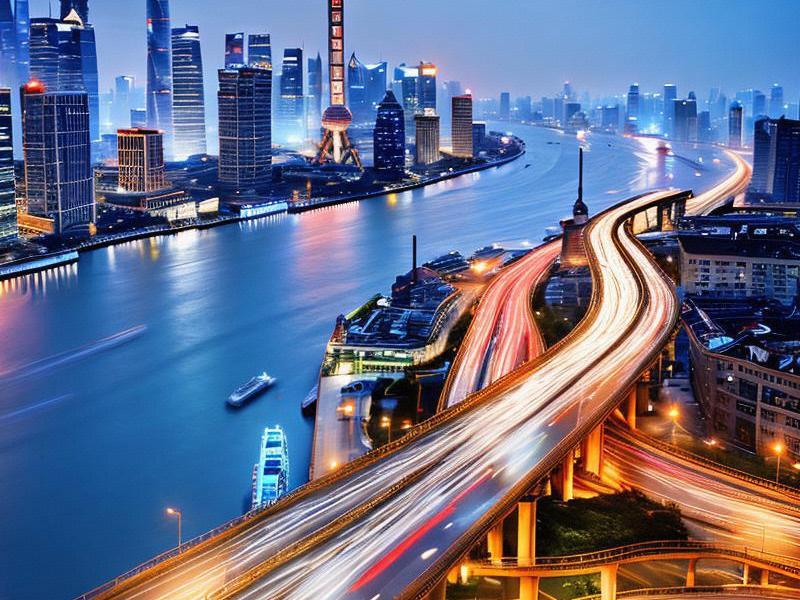
Shanghai, often referred to as the "Pearl of the Orient," stands as a beacon of modernity and tradition in China. This dynamic city, located on the eastern coast of China, has undergone a remarkable transformation over the past century, evolving from a modest fishing village into one of the world's most influential metropolises.
The history of Shanghai is deeply intertwined with its strategic location at the mouth of the Yangtze River. This position made it a natural hub for trade and commerce, attracting merchants from all over the world. In the 19th century, Shanghai was forcibly opened to foreign trade following the First Opium War, leading to the establishment of the International Settlement and the French Concession. These areas became melting pots of cultures, with Western architecture, cuisine, and customs blending with local traditions.
Today, Shanghai is a city that seamlessly blends the old with the new. The iconic Bund, with its historic colonial-era buildings, offers a glimpse into the city's past, while the futuristic skyline of Pudong showcases its modern aspirations. The juxtaposition of these two worlds is a testament to Shanghai's unique ability to preserve its heritage while embracing progress.
Culturally, Shanghai is a vibrant tapestry of art, music, fashion, and cuisine. The city is home to numerous museums, galleries, and theaters, such as the Shanghai Museum, which houses an impressive collection of Chinese art, and the Shanghai Grand Theatre, a venue for world-class performances. The annual Shanghai International Film Festival attracts filmmakers and cinephiles from around the globe, further cementing the city's reputation as a cultural hub.
上海龙凤论坛419 Fashion in Shanghai is equally dynamic, with the city hosting international fashion weeks and being a favorite destination for designers and fashion enthusiasts. The bustling streets of Nanjing Road and Huaihai Road are lined with boutiques, department stores, and street markets, offering a wide array of shopping experiences.
Culinary delights abound in Shanghai, with its signature dishes such as Xiaolongbao (soup dumplings), Shengjianbao (pan-fried dumplings), and Hongshao Rou (braised pork) being must-tries for visitors. The city's night markets and food streets provide an authentic taste of local flavors, while its high-end restaurants offer gourmet experiences that cater to international palates.
Economically, Shanghai is a powerhouse, serving as China's financial and commercial center. The city is home to the Shanghai Stock Exchange, one of the largest in the world, and is a major hub for multinational corporations. Its well-developed infrastructure, including the world's busiest container port, has made it a key player in global trade.
The Pudong New Area, developed in the late 20th century, is a symbol of Shanghai's economic ambition. This area boasts towering skyscrapers, such as the iconic Oriental Pearl Tower and the Shanghai Tower, which is the tallest building in China and the second-tallest in the world. Pudong also houses the Lujiazui Financial District, where some of the world's largest banks and financial institutions have established their presence.
上海龙凤sh419 Innovation and technology are driving forces behind Shanghai's continued growth. The city has invested heavily in research and development, establishing itself as a leader in fields such as artificial intelligence, biotechnology, and green energy. The Zhangjiang Hi-Tech Park, often referred to as "China's Silicon Valley," is home to numerous high-tech companies and research institutions.
Shanghai's commitment to sustainability is evident in its efforts to reduce carbon emissions and promote green development. The city has implemented various initiatives to improve air quality, enhance public transportation, and encourage the use of renewable energy. The Bund's transformation into a pedestrian-friendly area with green spaces and bike lanes is a prime example of these efforts.
Education is another area where Shanghai excels, consistently ranking among the top cities in the world for education. The city is home to prestigious universities such as Fudan University and Tongji University, which attract students and scholars from around the globe. Shanghai's education system emphasizes innovation and critical thinking, preparing its youth for the challenges of the future.
上海龙凤419会所 Tourism is a significant contributor to Shanghai's economy, with millions of visitors flocking to the city each year. Attractions such as the Yu Garden, a classical Chinese garden, and the Yu Yuan Market, a bustling shopping complex, offer insights into the city's rich history and culture. The Shanghai Disneyland, opened in 2016, has become a major tourist attraction, drawing visitors with its magical experiences and world-class entertainment.
Shanghai's role as a global city is further enhanced by its international connectivity. The city is served by two major airports, Hongqiao International Airport and Pudong International Airport, which handle millions of passengers annually. Its extensive rail network, including the high-speed Shanghai Maglev Train, provides efficient transportation to other parts of China and beyond.
The city's leadership in urban planning and development is evident in its well-organized layout and efficient public services. Shanghai's metro system, one of the busiest in the world, offers convenient and affordable transportation for residents and visitors alike. The city's commitment to public welfare is reflected in its comprehensive healthcare system and social security programs.
In conclusion, Shanghai is a city that embodies the spirit of modern China while honoring its rich cultural heritage. Its rapid economic growth, vibrant culture, and innovative spirit make it a global leader and a source of inspiration for cities around the world. As Shanghai continues to evolve, it remains a symbol of China's aspirations and a testament to the potential of urban development.
